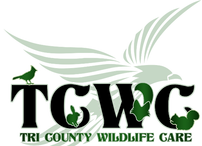Living In Mountain Lion Territory
By Susan Manning
We live in Mountain Lion Territory and I cringe every time I hear a pet or livestock animal has been horribly killed. I feel heartsick for what the owners must be feeling and what will come next. Too often killing is suggested and it is not the answer.
To offer some background, my husband John and I owned the Feed Barn for 29 years and during that time span, we raised for sale, Zebu cattle, Sicilian donkeys, miniature horses, paint horses, Pygmy goats and chicken eggs at our small ranch in Pine Grove. We had great fencing installed by Drew Dorris and birthing sheds for all of our animals. Our real secret to successfully keeping mountain lions away was our very protective donkey, Dixie. Not all donkeys are protective, but she was and she would charge deer and dogs and bray and bray until we ran out of the house to see what was wrong.
We live in Mountain Lion Territory and I cringe every time I hear a pet or livestock animal has been horribly killed. I feel heartsick for what the owners must be feeling and what will come next. Too often killing is suggested and it is not the answer.
To offer some background, my husband John and I owned the Feed Barn for 29 years and during that time span, we raised for sale, Zebu cattle, Sicilian donkeys, miniature horses, paint horses, Pygmy goats and chicken eggs at our small ranch in Pine Grove. We had great fencing installed by Drew Dorris and birthing sheds for all of our animals. Our real secret to successfully keeping mountain lions away was our very protective donkey, Dixie. Not all donkeys are protective, but she was and she would charge deer and dogs and bray and bray until we ran out of the house to see what was wrong.
Killing wildlife as a response is cruel, illegal and at best a temporary solution. Wildlife is all around us and just like us, trying to survive. They have simple needs of food, water and shelter. They are also opportunistic and will take an easy catch before a difficult one.
It is our responsibility to keep our animals safe and there are many ways to do this. We have a chicken coop and a bobcat got in and killed some of our chickens. We did not blame the bobcat or try to kill that incredibly beautiful creature, we reinforced our coop.
Killing wildlife is cruel because they deserve to live and often our carelessness leads to their demise. I have had two friends who admittedly did nothing to protect their goats and one even said they did not have mountain lions in their area. Both had lions trapped and killed. Both had places to put their goats to keep them safe and neither did.
The success of these predators emboldens them and increases the chance they will return. Unfortunately, this means that residents with animals that are careful may be more likely at risk too. Relocation is not a solution for nuisance wildlife either because there is always another predator. Prevention is key to living with wildlife.
I have seen people telling others to shoot mountain lions online. This is not legal and it is not a solution. In California, mountain lions are protected and non-lethal deterrents are required before a permit to kill a problem animal will be issued.
If mountain lions are killed, other predators will move in to take their place. The real solution is to prevent conflicts. There are many great ways to do this. First, residents should not feed wildlife. Pet food left outside and feeding deer draws in mountain lions. Feeding deer is illegal for this reason. When drawn in close, the lions will take the easy food such as pets and livestock instead of deer that are fast and strong.
Chickens should never be allowed to free range. Domestic animals simply do not have the skills to survive with predators. Again, this draws in predators and even if the resident with the free range chickens does not have losses, this practice may cause their neighbors to lose pets or livestock.
Deer fencing and gardening to keep deer out helps keep predators away. Mountain lions like to surprise their prey and a device called Fox Lights has shown great results because this flashes random light to disturb lions and predators and make them believe someone is on patrol. This device was developed in Australia to protect sheep and is very effective. Trained guardian dogs and fully enclosed pens are the best measures to secure livestock. Fencing that is electrified and at least 10’ tall can provide protection. Brush should be cleared to remove hiding places and trees should not overhang enclosures.
Mountain lions primarily hunt from dusk to dawn and hunt alone. They are calm, and elusive killing a deer about every one to four weeks. They will hide their kill and return many times to feed. We need mountain lions because they help to maintain healthy prey populations. To put things in perspective, there are 4-6000 mountain lions and approximately 39 million humans in California.
Please call Tri County Wildlife Care for advice on preventing mountain lion conflicts and for advice on protecting pets and livestock from predators. We believe we can coexist with predators that help maintain a healthy ecosystem. For more information, please visit pawspartners.org or call 208-283-3245.
It is our responsibility to keep our animals safe and there are many ways to do this. We have a chicken coop and a bobcat got in and killed some of our chickens. We did not blame the bobcat or try to kill that incredibly beautiful creature, we reinforced our coop.
Killing wildlife is cruel because they deserve to live and often our carelessness leads to their demise. I have had two friends who admittedly did nothing to protect their goats and one even said they did not have mountain lions in their area. Both had lions trapped and killed. Both had places to put their goats to keep them safe and neither did.
The success of these predators emboldens them and increases the chance they will return. Unfortunately, this means that residents with animals that are careful may be more likely at risk too. Relocation is not a solution for nuisance wildlife either because there is always another predator. Prevention is key to living with wildlife.
I have seen people telling others to shoot mountain lions online. This is not legal and it is not a solution. In California, mountain lions are protected and non-lethal deterrents are required before a permit to kill a problem animal will be issued.
If mountain lions are killed, other predators will move in to take their place. The real solution is to prevent conflicts. There are many great ways to do this. First, residents should not feed wildlife. Pet food left outside and feeding deer draws in mountain lions. Feeding deer is illegal for this reason. When drawn in close, the lions will take the easy food such as pets and livestock instead of deer that are fast and strong.
Chickens should never be allowed to free range. Domestic animals simply do not have the skills to survive with predators. Again, this draws in predators and even if the resident with the free range chickens does not have losses, this practice may cause their neighbors to lose pets or livestock.
Deer fencing and gardening to keep deer out helps keep predators away. Mountain lions like to surprise their prey and a device called Fox Lights has shown great results because this flashes random light to disturb lions and predators and make them believe someone is on patrol. This device was developed in Australia to protect sheep and is very effective. Trained guardian dogs and fully enclosed pens are the best measures to secure livestock. Fencing that is electrified and at least 10’ tall can provide protection. Brush should be cleared to remove hiding places and trees should not overhang enclosures.
Mountain lions primarily hunt from dusk to dawn and hunt alone. They are calm, and elusive killing a deer about every one to four weeks. They will hide their kill and return many times to feed. We need mountain lions because they help to maintain healthy prey populations. To put things in perspective, there are 4-6000 mountain lions and approximately 39 million humans in California.
Please call Tri County Wildlife Care for advice on preventing mountain lion conflicts and for advice on protecting pets and livestock from predators. We believe we can coexist with predators that help maintain a healthy ecosystem. For more information, please visit pawspartners.org or call 208-283-3245.




